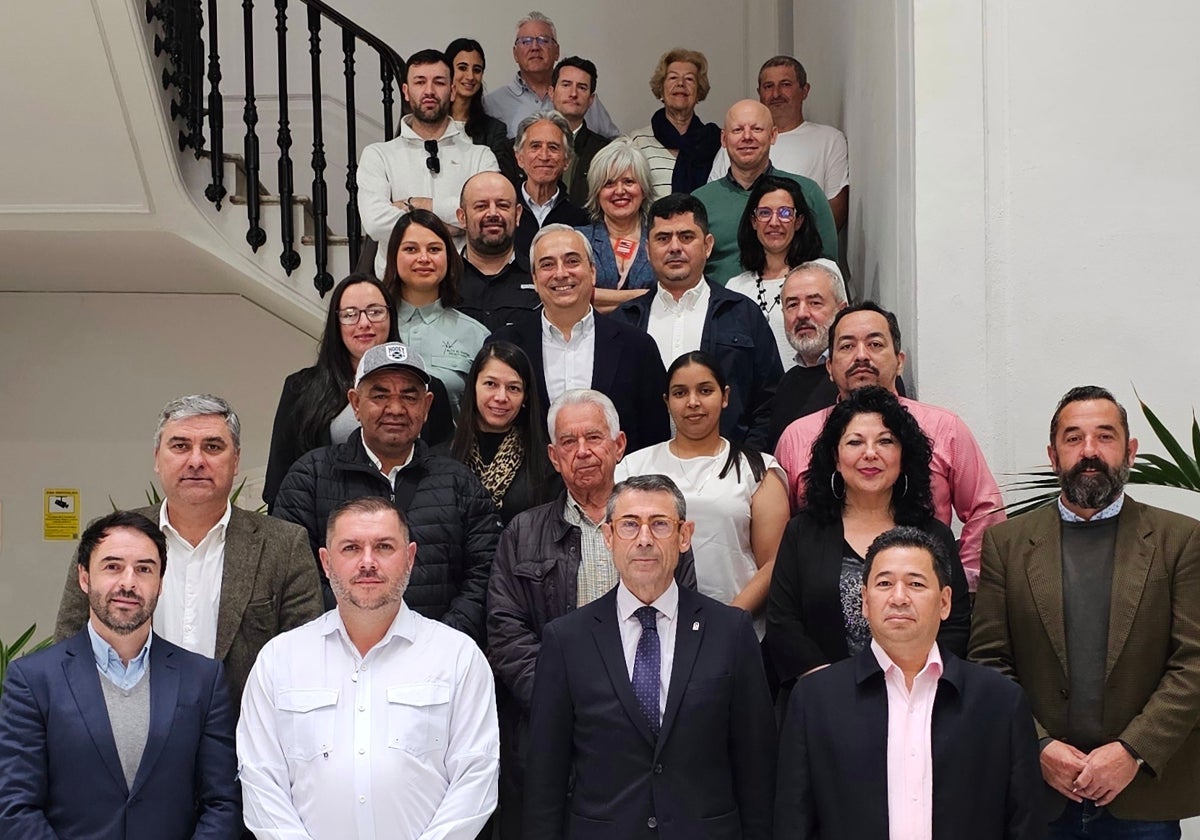Malaga's raisin producers join forces with farmers in Honduras and Costa Rica
The provincial authority, the Diputación, hosted a seminar which brought together representatives of the three countries
The Muscat of Alexandria grape is a crop in decline in the Axarquía area of Malaga province, due to the expansion in the subtropical fruit sector which is more profitable. Local farmers are encouraged to replace the old, centuries-old vines with mango or avocado trees.
However, in the villages of Cútar, Moclinejo, Almáchar, El Borge and Iznate, some 2,000 hectares vines are still cultivated every year, with around 2,000 families working in the sector, which produces grapes, raisins and sweet wines.
In April 2018 the Food and Agriculture Organisation of the United Nations (FAO) declared the Axarquía raisin a Globally Important Agricultural Heritage System (GIHAS), a distinction with which the Axarquía wants to keep this traditional crop alive and turn it into a niche opportunity for the villages. However, low profitability, scarcity of funding and support and the drought, which has reduced production, have all had a major impact on the sector in recent years.
In an attempt to continue giving international projection to the label and to build bridges with other countries that also have GIHAS status, the Junta de Andalucía hosted on Tuesday 4 March a meeting of representatives from Malaga, Costa Rica and Honduras. It was the second transnational meeting of this international cooperation project, which is financed by the European Union - Costa Rica - Latin America and the Caribbean Adelante2 Triangular Cooperation Fund.
The project is financed by the European Union - Costa Rica - Latin America and the Caribbean Adelante2 Triangular Cooperation Fund.
Junta de Andalucía spokesperson Fernando Fernández welcomed the guests who included representatives from Costa Rica's ministry of agriculture and livestock and Honduras' secretariat of agriculture and livestock. The Costa Rican and Honduran offices of the FAO are providing technical support to the project.
Alianza Gihas' main objective is the recognition of traditional agricultural systems through a series of stages and coordinated actions, "which will involve the strengthening of the technical and management capacities of the key entities and actors involved in each country," according to a press release from the Junta de Andalucía.
Knowledge sharing
This second GIHAS meeting forms part of a series of key activities for the exchange of knowledge and experiences, which allows for the strengthening of the local communities in the participating countries. The agenda included a visit to a vineyard where visitors saw the production of Malaga raisins and wines. There were also working sessions with representatives of the participating organisations from the three countries.
Meetings were held with municipal representatives, producers, cooperatives, associations and other local actors linked to the production systems. They took place in Malaga, Almáchar, Vélez-Málaga, Moclinejo and Comares.
In Costa Rica, the coffee system in the Los Santos area is characterised by a combination of traditional and modern agricultural practices. This system is crucial for the local economy, biodiversity conservation and environmental protection.
In the municipality of Danlí in Honduras, the traditional production systems include livestock, grains, coffee, bananas, tobacco, cocoa, and vegetables.

